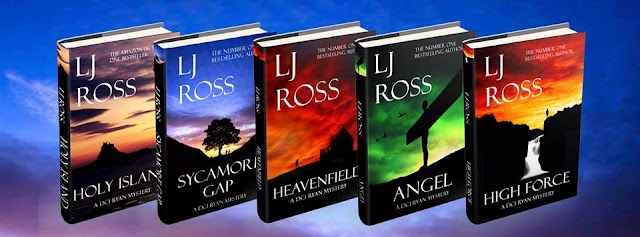The Psychology of Time Travel by Kate Mascarenhas #BlogTour
Kate Mascarenhas tells us which five film influenced The Psychology of Time Travel which is out now.
A time travel murder mystery from a brilliantly original new voice. Perfect for readers of Naomi Alderman's The Power and Emily St John Mandel's Station Eleven.
1967.
Four female scientists invent a time travel machine. They are on the cusp of fame: the pioneers who opened the world to new possibilities. But then one of them suffers a breakdown and puts the whole project in peril...2017.
Ruby knows her beloved Granny Bee was a pioneer, but they never talk about the past. Though time travel is now big business, Bee has never been part of it. Then they receive a message from the future – a newspaper clipping reporting the mysterious death of an elderly lady...2018.
When Odette discovered the body she went into shock. Blood everywhere, bullet wounds, that strong reek of sulphur. But when the inquest fails to find any answers, she is frustrated. Who is this dead woman that haunts her dreams? And why is everyone determined to cover up her murder?
Five films that influenced The Psychology of Time Travel
Somewhere in Time (1980) https://www.imdb.com/title/tt0081534/?ref_=fn_al_tt_1
Christopher Reeve falls in love with a portrait of an Edwardian actress, and wills himself back in time to meet her. He takes a pocket watch with him which she subsequently returns to him in the 1970s, creating a closed loop. This was probably my first introduction to the idea of objects that appear from nowhere: what the physicist Novikov calls “jinni”. I anglicised the name to genie when writing The Psychology of Time Travel.
Back to the Future (1985) https://www.imdb.com/title/tt0088763/?ref_=fn_al_tt_1
A deceptively psychological film. Marty McFly is stuck in a terribly Oedipal predicament; what could be more Freudian than that?
Peggy Sue Got Married (1986) https://www.imdb.com/title/tt0091738/?ref_=nv_sr_1
Unusually, the time traveller in this film is a middle aged housewife (played by Kathleen Turner), and it’s one of my favourites for that reason. It’s a quirky, heightened film with a memorably eccentric performance from Nicolas Cage as her husband. Like The Psychology of Time Travel, it’s very focused on coming to terms with earlier life decisions and experiences.
Donnie Darko (2001) https://www.imdb.com/title/tt0246578/?ref_=nv_sr_1
Jake Gyllenhall plays a high school kid with schizophrenia. He has visions of a man in a rabbit suit bringing messages about time travel. As someone who also has experienced psychosis, I appreciated that this film makes you recognise his vulnerability – whereas so many other cinematic portrayals would have positioned a schizophrenic as the villain. I wanted to bring that sense of vulnerability (and occasional bravery) to the characters in The Psychology of Time Travel.
Arrival (2016) https://www.imdb.com/title/tt2543164/?ref_=fn_al_tt_1
Amy Adams plays a linguist who communicates with alien visitors, and her experience of time begins to change as a result. We tend to assume time travel stories, as “science” fiction, will be drawing on physics; but linguistics is the science that provides a “what if...?” scenario here. Similarly, although physics enables the premise of my novel, the story is otherwise interested in a different field entirely: psychology.
Kate Mascarenhas is a writer.
Born in 1980, she is of mixed heritage (white Irish father, brown British mother) and has family in Ireland and the Republic of Seychelles.
She studied English at Oxford and Applied Psychology at Derby. Her PhD, in literary studies and psychology, was completed at Worcester.
Since 2017 Kate has been a chartered psychologist. Previously she has been an advertising copywriter, bookbinder, and doll’s house maker. She lives in the English midlands with her partner.
Her new novel, The Psychology of Time Travel, is available now to buy in the UK.
Born in 1980, she is of mixed heritage (white Irish father, brown British mother) and has family in Ireland and the Republic of Seychelles.
She studied English at Oxford and Applied Psychology at Derby. Her PhD, in literary studies and psychology, was completed at Worcester.
Since 2017 Kate has been a chartered psychologist. Previously she has been an advertising copywriter, bookbinder, and doll’s house maker. She lives in the English midlands with her partner.
Her new novel, The Psychology of Time Travel, is available now to buy in the UK.





Comments
Post a Comment